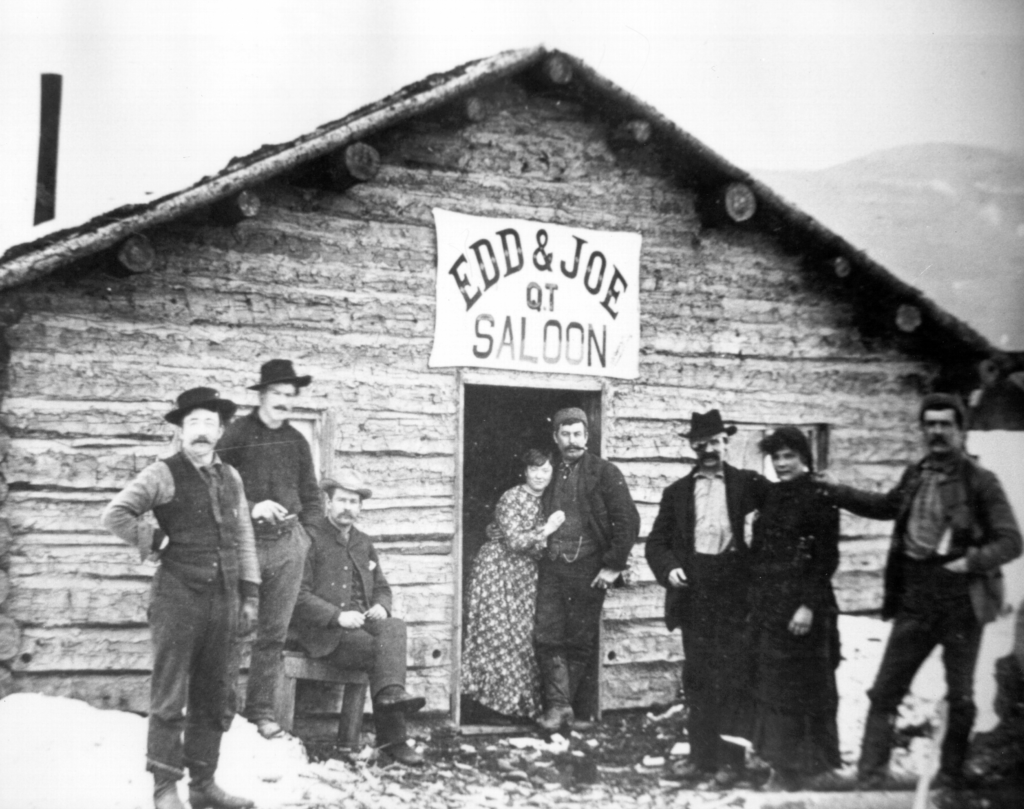Prohibition

Let’s take a look at the “Prohibition Act” in Canada. The dictionary definition of prohibition is: Forbidding; edict, order that forbids; forbidding by law of sale of intoxicants. It was believed that prohibition would reduce crime and corruption, solve any social problems, reduce tax burden created by prisons and poorhouses and improve the health of the Canadian people.
The CPR had first enacted a form of prohibition in order to keep their workers sober and the communities in which they lived safe. At first CPR`s act stated that the distance between an establishment that sold alcohol and the railway would be seven miles. This was soon changed to 20 miles and places like the Hog Ranch (Parson B.C) at the 21-mile opened in order to accommodate the drinking population. This act also started a string of “Whiskey Trails“ that were just outside of the legal 20-mile line. These trails were used to transport the liquor from one safe place to another.
When it became apparent that the government really meant to enact Prohibition the public tried many different things in order help defeat the motion. In August, 1916, the following article was distributed around the provinces to try to get the sympathy vote.
What Prohibition Act means to Housewives- Measure Interferes with Established Household Customs and Practices. The Prohibition Act has a meaning for women as well as men and there are features of the measure which every housewife and mother should take into account. Nearly every family has in its cupboard or medicine chest a supply of brandy, port wine or other liquor for medical use in case of an emergency. This is well- established custom in all civilized countries and time after time this preventive measure meets conditions of urgent necessity.
As the traffic in liquor is now handled a person may go to licensed premises and secure a flask of brandy at a cost of 50 cents or less. Under the terms of the prohibition act it will still be possible to secure brandy within the province for such purposes. It means however that instead of going to the liquor premises for the supply, the head of the household must first go to the doctor for the prescription (fee$2.00) then go to the drug store and secure the liquor at drug store rates which, for the same quantity, would cost from $2.50 or $3.50. The comparison between the present method and the prohibition law is striking, especially from a financial standpoint.
Nearly every household wife uses brandy, port, Madeira or other in connections with her household cooking. Especially is this so about Christmas time when the plum pudding of our country forefathers, the time-honoured Christmas fruit cake and the appetizing mince pie, all of which require liquor for proper preparation, must be provided. Under the Prohibition law no provision is made for supplying liquor for household purposes, hence the housewife must, some weeks beforehand, send her good money out of the province to secure the supply which she formally secured locally without difficulty. In addition to the trouble and inconvenience of this arrangement she will find that the prices she will pay will be considerably higher than those she was accustomed to, on account of the transportation charges.
It is not only in the greater things, on which strong utterances are being made in the discussion of the Prohibition Act that the measure plays a part, but even in minor details such as are noted above it will be found to directly inconvenience and discommode.
A reading of the Act will show this it is not a Prohibition Act in an sense of the term, and that all intelligent electors who have the best interest of the province at heart, should vote against the measure.
Prohibition in B.C. was enacted on October 1, 1917 with a vote of 133 for Prohibition and 62 against. After the vote was decided, a commissioner was appointed by the province to enforce the prohibition law, but the job was too big for the commissioner to handle himself.
The prohibition act wasn’t successful and was eventually removed. As you look through the old Police Diaries at the Golden Museum you see that for the years preceding and the years following the enactment of the “Prohibition Act“ it did make a difference. The number of people arrested for alcohol related offenses dropped dramatically You will however also find more incidences of “bootlegging“ although this offense was just marginally up.
